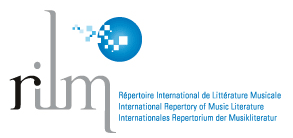Two Theater Regulations in 19th-Century Mexico. the Construction of a New Civility
Keywords:
19th century, Theatre Regulations, Civility, Foucault, Musical SociabilityAbstract
Drawing on two sets of regulations on theaters in 19th-century Mexico —the Reglamento Interior y Esterior Del Teatro: Para su Mejor Arreglo y Direccion Economica (1824) and the Reglamento para los teatros de México (1853)—, this article analyzes the construction of this important space of civility in the young nation. As occurred across the recently formed Latin American nations, in Mexico, the elite took control over theatrical spaces in the independent country and, through diverse negotiations with entrepreneurs and the operatic companies, established new rules of civility. These were based on a perceived European standard, on the one hand, and a national sense of pride, on the other. To Latin American elites, opera constituted the spectacle par excellence, one where the social order was performed, both on the theater’s stage and in its seats. Regulating it adequately meant the equivalent of government maintaining the social order. The disciplinary actions on behalf of dominant social groups in the complex public space of theatre were inspired by what Foucault called “technologies of power”, which resulted in many tensions.
Published
Issue
Section
License
ATTRIBUTION-NONCOMMERCIAL 4.0 INTERNATIONAL
https://creativecommons.org/licenses/by-nc/4.0/
You are free to:
- Share — copy and redistribute the material in any medium or format
- Adapt — remix, transform, and build upon the material
- The licensor cannot revoke these freedoms as long as you follow the license terms.
Under the following terms:
- Attribution — You must give appropriate credit , provide a link to the license, and indicate if changes were made . You may do so in any reasonable manner, but not in any way that suggests the licensor endorses you or your use.
- NonCommercial — You may not use the material for commercial purposes .
- No additional restrictions — You may not apply legal terms or technological measures that legally restrict others from doing anything the license permits.
Notices:
You do not have to comply with the license for elements of the material in the public domain or where your use is permitted by an applicable exception or limitation .
No warranties are given. The license may not give you all of the permissions necessary for your intended use. For example, other rights such as publicity, privacy, or moral rightsmay limit how you use the material.







